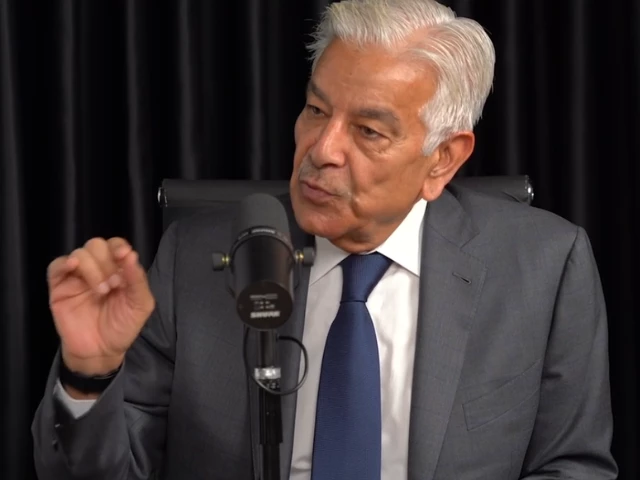Defense Minister Khawaja Asif said that the recent Defense Agreement between Pakistan and Saudi Arabia is not linked to current regional tensions – in particular Israel actions in Qatar – but is the result of years of dialogue and bilateral cooperation supported.
In an exclusive interview with British journalist Mehdi Hasan, Asif confirmed that the pact was not a reaction to recent regional developments.
“This agreement is not a reaction to what happened in Qatar,” he said. “It has been in negotiation for some time. Although its finalization has been accelerated, it was already in the offer,” he added.
Asif has continued to develop the long -standing relationship between Pakistan and Saudi Arabia, emphasizing the continuation of a defense partnership which dates back more than five decades.
“We have a military presence in Saudi Arabia for many years, sometimes reaching 4,000 to 5,000 soldiers. The relationship was a bit transactional, but now it has been formalized,” he said, highlighting sustainable cooperation between the two nations.
Read: PM is a historical response to Indian aggression, calls peace and dialogue to the session of UNGA
When asked if the agreement involved the Pakistan nuclear umbrella, Asif refused to discuss the issue. “This is a defense pact, and these questions are not discussed publicly,” he replied, avoiding direct commitment on the subject.
Pakistan and Saudi Arabia have signed a historic strategic mutual defense agreement, declaring that “any aggression against one or the other country is considered an assault against both”, according to a joint statement.
The pact was signed during the visit of Prime Minister Shehbaz Sharif to Riyadh at the invitation of the Saudi Crown Prince and Prime Minister Mohammed Bin Salman Bin Abdulaziz Al Saud.
The interview also spoke of Pakistan’s domestic policy, Hasan questioning the Minister on the treatment of former Prime Minister Imran Khan, who has been imprisoned since August 2023.
Despite the international conviction, including a panel of UN experts declaring the detention of Khan “illegal”, Asif defended government actions, although it has not provided specific details concerning legal justification.
Asked about the allegations surrounding the Twitter account of former Prime Minister Imran Khan, AIF replied by declaring that Khan exploited the account of his prison cell.
Read: Indian official linked to the murder plot, assassination plans in Nepal or Pakistan, according to the American courtyard
Hasan, however, stressed that Asif had previously suggested that the account was managed by India. In a candid exchange, AIF ATE: “Who, then, exploits the account? What is the truth? Either he does it from his cell, or he should at least identify who is behind.”
Asked about the evidence in support of his statements, Asif was reluctant to provide details. “I cannot disclose evidence,” he said. However, when he supported more to find out if the claims were based on intelligence, he confirmed: “Obviously, he is based on intelligence. No one says it openly.”
The conversation then turned into broader geopolitical problems, such as Pakistan’s position on cashmere. Asif reiterated Pakistan’s support for a potential referendum for the independence of cashmere and argued that the question of self -determination for the cashmere people remains at the heart of Pakistan foreign policy.
Addressing the current state of relations with the United States, he recognized a “transactional” dynamic with Washington, describing the relationship as often “flirtatious”.
Asked about Pakistan’s relations with China, Asif has reaffirmed that China remains the first strategic partner in Pakistan. “They are reliable and are our neighbor,” he said, emphasizing the crucial role played by the bilateral relationship in the foreign policy of Pakistan.




